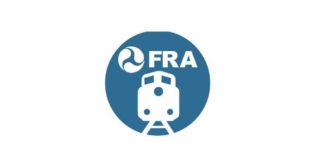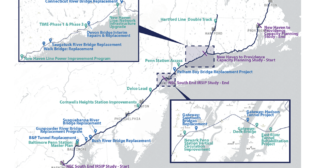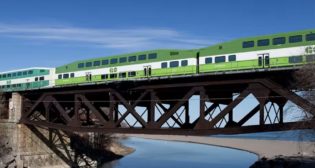
Amtrak Arbitration Amputation Attempt
Written by William C. Vantuono, Editor-in-ChiefHouse Subcommittee on Railroads, Pipelines, and Hazardous Materials Chair Donald M. Payne Jr. (D-N.J.), with Reps. Conor Lamb (D-Pa.) and Committee Vice Chair Marilyn Strickland (D-Wash.) on Oct. 27 introduced the “Ending Passenger Rail Forced Arbitration Act” (EPRFAA), the purpose of which is “to give customers the right to sue Amtrak to resolve disputes” by “eliminating the current arbitration clause for dispute resolution that passengers are forced to accept when they purchase an Amtrak ticket.”
Citing that Amtrak customer disputes “range from a complaint over a ticket price to a wrongful death from an accident,” the legislators said EPRFAA “is necessary to restore the rights of customers after Amtrak required them to resolve disputes through a mandatory arbitration clause connected to their ticket purchase in 2019. When customers bought a ticket, most of them did not know that ticket eliminated their right to sue Amtrak in a U.S. court. Additionally, the clause covered second-party tickets, such as one bought for a minor by a parent, and prohibited customers from joining class action suits. Other transportation companies, such as major airlines, are prohibited from using mandatory arbitration clauses in their dispute resolution.”
“This bill would ensure customers can pursue legal remedies in court and give them more options to resolve problems they experience with Amtrak travel,” said Payne. “In addition, it would hold Amtrak more accountable for actions and issues that occur during rail travel. American passengers and their families deserve all the protections Congress can provide them. As Chairman of the Rail Subcommittee, I will continue to work to increase their rights and protect the safety of all rail passengers.”
The 2019 change to the so-called “Arbitration Clause” buried deep within Amtrak’s “Terms and Conditions” for ticket sales that stipulates mandatory arbitration—effectively, preventing passengers from filing lawsuits against Amtrak “including, but not limited to, claims for negligence, gross negligence, physical impairment, disfigurement, pain and suffering, mental anguish, wrongful death, survival actions, loss of consortium and/or services, medical and hospital expenses, expenses of transportation for medical treatment, expenses of drugs and medical appliances, emotional distress, exemplary or punitive damages arising out of or related to any personal injury,” captured the attention of legislators and passenger rail advocates; EPRFAA appears to be the first legislative attempt to reverse it.
The 488-word Arbitration Clause appears two-thirds of the way into Amtrak’s 15,500-word Terms and Conditions. The modification to the clause occurred in early 2019, shortly after a $265 million court settlement resulting from Amtrak’s May 12, 2015 Frankford Junction overspeed derailment in Philadelphia on the Northeast Corridor (below) in which eight people died and 238 were injured. The clause received almost no attention until Nov. 8, 2019, when Politico broke the story.



